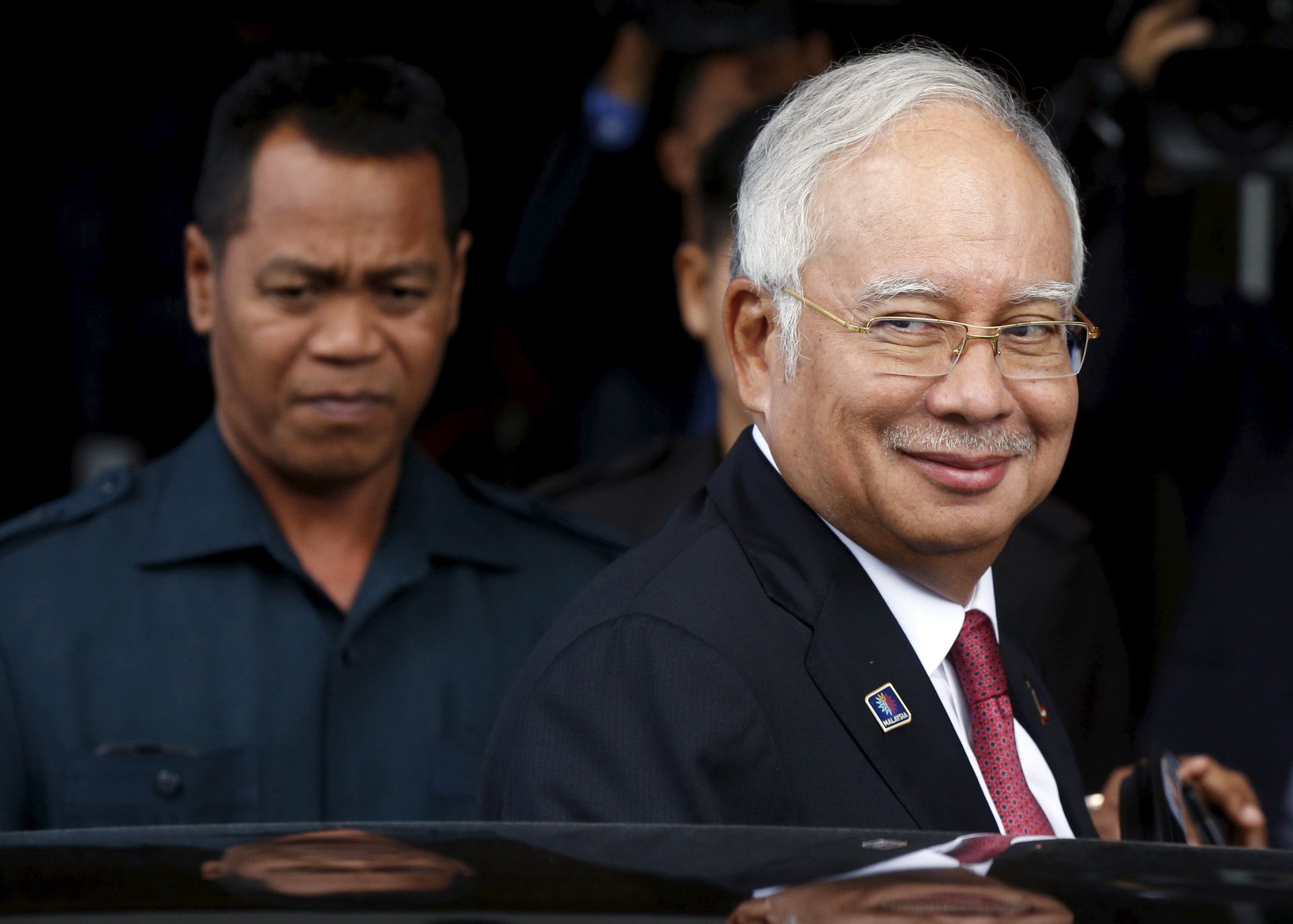How Malaysia’s prime minister has stifled critics, opponents, and the press
Malaysian prime minister Najib Razak has been embroiled in controversy since last summer. In early July 2015, news broke that he received nearly $700 million—into his personal bank accounts—that could be traced back to the debt-laden government investment fund 1Malaysia Development Berhad (1MDB). This week, an attorney general he appointed cleared Najib of any wrongdoing in the matter and declared the case closed.


Malaysian prime minister Najib Razak has been embroiled in controversy since last summer. In early July 2015, news broke that he received nearly $700 million—into his personal bank accounts—that could be traced back to the debt-laden government investment fund 1Malaysia Development Berhad (1MDB). This week, an attorney general he appointed cleared Najib of any wrongdoing in the matter and declared the case closed.
The Malaysian Anti-Corruption Commission is seeking a review of that action. Skeptics of Najib have questioned the (some say unbelievable) explanation given by the attorney general: that the huge sum was simply a personal gift from Saudi royals.
Since the 1MDB news broke, the Malaysian government has tried to stifle dissent and block information to keep the nearly 30 million-strong population in the dark about the ongoing story, and dampen any potential uprising against Najib. Here are some of the highlights:
- The trial of dancer Bilqis Hijjas began yesterday (Jan. 28). She’s accused of insulting the prime minister and his wife by dropping balloons on them last year. If the balloons had been unmarked, Bilqis would not likely be in court. But the balloons had the words “justice,” “democracy,” and “free media” on them. In today’s Malaysia, those words can be dangerous.
- The attorney general said that, before clearing the prime minister of wrongdoing on Tuesday (Jan. 26), he read reports prepared by Malaysian Anti-Corruption Commission. According to a source at the agency who spoke to Reuters, those reports included something the attorney general ignored: a recommendation to charge Najib with criminal misappropriation.
- In late July 2015 Najib fired deputy prime minister Muhyiddin Yassin and four other ministers. Days earlier, Muhyiddin had called upon his boss to better explain the money transfers to the public. Najib also replaced the attorney general at the time, Gani Patail, with the man who just cleared him: Mohamed Apandi Ali.
- The whistle-blower website Sarawak Report (based in the UK) has been a thorn in Najib’s side, and access to it from Malaysia has been blocked since late last year. This week Najib’s communications commission also blocked another site, US-based Medium, for posting an article by Sarawak Report entitled “Najib negotiates his exit but he wants safe passage and all the money! Exclusive disclosure.” Here’s that article on Medium and Sarawak Report.
- In July 2015, Najib’s legal team was expected to sue the Wall Street Journal for defamation. More than half a year later, it still hasn’t done so. But Najib, or those under him, still take potshots at the paper. In December, 1MDB said in a press release that the WSJ “appears happy to have become a noticeboard for conspiracy theories.”
- Local media has been attacked as well. When publications run by the Edge Media Group reported on the 1MDB matter, the company’s publishing permits were temporarily suspended. In 2013 when local publication The Heat likened the extravagant shopping trips of Najib’s wife Rosmah Mansor—dubbed “the first lady of shopping”—to those of Imelda Marcos, its publishing license was suspended.
- In September 2015 Malaysian authorities arrested Khairuddin Abu Hassan, a critic of the administration, as he attempted to travel to New York and meet with FBI agents. Khairuddin had planned to urge US authorities to investigate suspicious money transfers to Najib that went through California-based Wells Fargo.
- When peaceful rallies were planned to call for cleaner government and democratic reform, authorities declared them illegal. That didn’t stop the rallies from going forward, however, with tens of thousands protesting in Kuala Lumpur, elsewhere in Malaysia, and abroad in late August 2015.
So is it working? Even his fiercest critics believe Najib won’t likely lose power before the 2018 elections. Describing the lawmakers who protect Najib rather than speak up against him, former prime minister Mahathir Mohamad told Reuters: ”All of them are scared and they look after their own safety. They’re not looking after the party, the nation. It’s about themselves.”